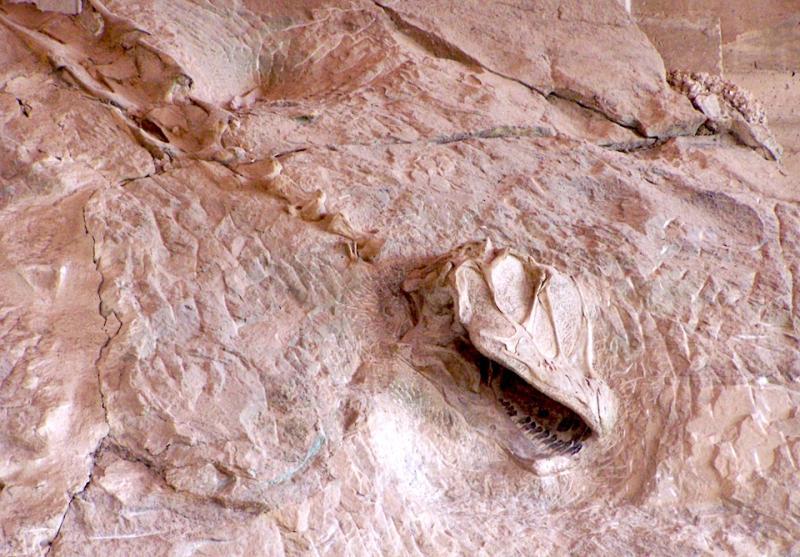
A Paleontological Resources Preservation Act adopted by the Interior Department is intended to safeguard fossil resources on public lands/NPS file
Federal land managers are coordinating their management of paleontological resources on public lands, a process designed to improve not just protection of fossils but also to provide for a consistent approach in inventorying and monitoring these resources.
“At Interior, we have the privilege of stewarding many of the world’s richest areas for fossils and paleontological resources – America’s public lands,” said Interior Secretary Deb Haaland. “This collaboration among the four bureaus and partnerships between museums and avocational paleontology groups will allow the Interior Department to fulfill its mission to preserve paleontological resources and share these discoveries with the public.”
On Monday the department published a final rule to implement the Paleontological Resources Preservation Act. The Bureau of Land Management, Bureau of Reclamation, U.S. Fish and Wildlife Service and National Park Service worked closely to develop a consistent management approach given their unique missions and land areas to ensure these palaeontologic resources are available for current and future generations to enjoy.
Paleontological resources are defined as any fossilized remains, traces or imprints of organisms preserved in or on the Earth’s crust. These resources are valuable because they provide unique information about the history of life on Earth.
The act requires the Interior Department bureaus to curate paleontological resources at an approved repository using a consistent approach for preservation, storage and access to collected paleontological resources. It prohibits the bureaus from releasing specific locality information unless doing so would not create risk of theft or vandalism to the resource.
The published rule calls for management based on scientific principles and expertise. It provides for an inventory and monitoring process through a new permitting mechanism designed to be transparent and predictable.
To protect fossils on federal lands, the bureaus encourage shared resource stewardship and partnerships with the public. The rule defines prohibited acts and establishes civil and criminal penalties for serious resource violations and includes reward provisions to enhance public engagement in resource protection and forfeiture provisions to enable reclamation of stolen resources.
Casual collection of common non-vertebrate fossils is allowed without a permit on lands administered by the BLM. The BLM encourages the public to learn about fossils and collect a reasonable amount of common invertebrate and plant fossils, such as trilobites and leaf impressions. On lands administered by the Bureau of Reclamation, collection of fossil material is prohibited; however, Reclamation will establish special use areas where the public will be able to engage in casual collecting. Casual collection is prohibited on all lands managed by the National Park Service and the U.S. Fish and Wildlife Service.
More information can be found at the BLM paleontology program website and the NPS paleontology program website.



Add comment